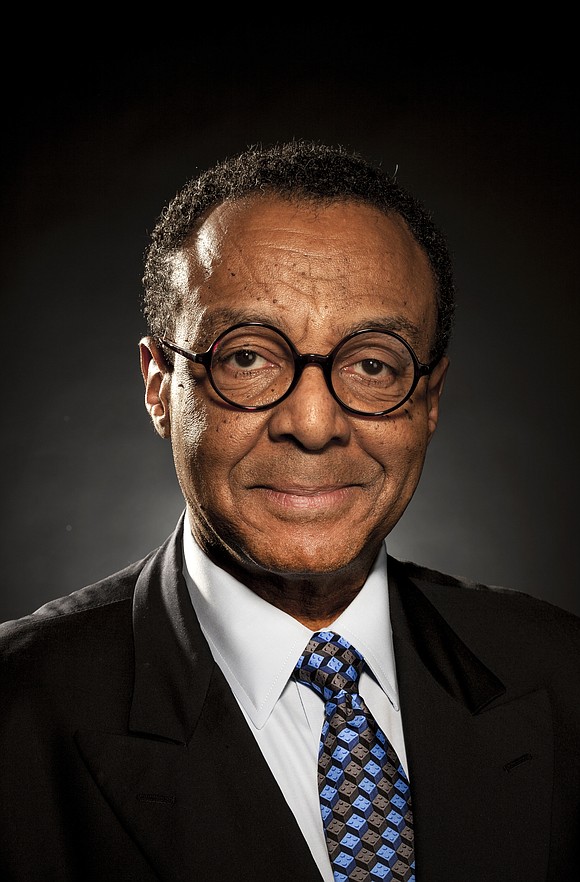Newsroom attack feels like home invasion
7/5/2018, 6:35 p.m.
Clarence Page
When news broke that a man with a shotgun had killed five employees in the Annapolis, Md., Capital Gazette newsroom, recent 24/7 media chatter about “civility” suddenly got real.
A lone gunman, reportedly carrying smoke grenades, opened fire with a shotgun in the Capital Gazette’s newsroom in a suburban industrial park. Witnesses describe a scene of total chaos, with staff members diving under desks—and tweeting their own story to the world outside.
Police arrested suspect Jarrod Ramos, who reportedly had a long-running grudge against the paper, and charged him with five counts of murder.
The deceased—described by colleagues as old-school newspaper people—sound like the sort of creative, dedicated folks who are familiar to just about every newsroom. You can hear echoes of the staff’s resilient spirit in a late announcement on the newspaper’s Twitter account where a defiant late-night tweet announced, “Yes, we’re putting out a damn paper tomorrow.”
And they did, which comes as little surprise to me. Newspeople tend to live for their next opportunity to report or comment on the news. We just don’t expect the news to be about us.
Yet ever since the terrorist attack on the French satirical weekly Charlie Hebdo left a dozen people dead and 11 injured in Paris in 2015, I know I am not alone among news workers in pushing the possibility of a similar attack here to the back of my mind. The perseverance of the Capital Gazette staff should be an inspiration to us all — and not just in the news business.
It didn’t take long for news by reporters and editors who were covering their own story on social networks to be flooded with dispatches from the rest of the Twitterverse. Many chimed in with accusations, assumptions and conspiracy theories about who was responsible for the tragedy.
Many predictably try to fit the story into the national “incivility” debate that welled up earlier in the week after aides to President Donald Trump were verbally attacked while dining out after hours by opponents of the administration’s “zero tolerance” immigration policy.
But this episode doesn’t easily fit into the national left-versus-right political narratives. The Capital Gazette is a classic example of the backbone of the news business: Local news.
It is here at the sort of midsize newspapers where so many of us journalists begin our careers and sometimes spend our entire careers, building a level of trust with the local community that enables local media to help local government better serve the public.
But “fake news”? It’s not so easy to make that charge against papers and other media in a community small enough for people to hold local journalists as accountable as next door neighbors. Reporters know it, too. You want to be sure to get the story right and spell all the names correctly when you know you might well run into the people involved at a local church or supermarket.
With that, my heart goes out to the Capital Gazette staff, their families and to the community that knows them best, just as the newspaper knows the community.
As one of my colleagues observed, I feel as though tragedy has hit a member of my extended family. I have often advised journalism students that, “If you plan to stay in this business, get used to the people who are working around you. You’ll probably see them again. Media are a very small world.”
Indeed, I feel as though I know those who were killed while doing their jobs, based on the descriptions given by their co-workers at the paper.
Gerald Fischman was editor of the editorial page, which, after the deaths, ran a mostly blank page and a message that included the words, “We are speechless.”
Wendi Winters was a community reporter who also oversaw editing of special publications and wrote a “Teen of the Week” column.
John McNamara was an old-school professional who “didn’t wear a fedora,” a colleague said, “but maybe he should have.”
Rebecca Smith was recently hired as a sales assistant in the Annapolis office after working in marketing for a health care organization, according to the Baltimore Sun.
Rob Hiaasen was a former features writer for The Baltimore Sun who joined the Capital Gazette in 2010 as an assistant editor and columnist. He also taught journalism as an adjunct at the University of Maryland.
The brother of best-selling author and Miami Herald columnist Carl Hiaasen, Rob’s humorous online columns reveal how he, like his brother, had mastered the art of giving readers something to chuckle and think about amid the depressing front page news of the day. We could use some of that humor now.






